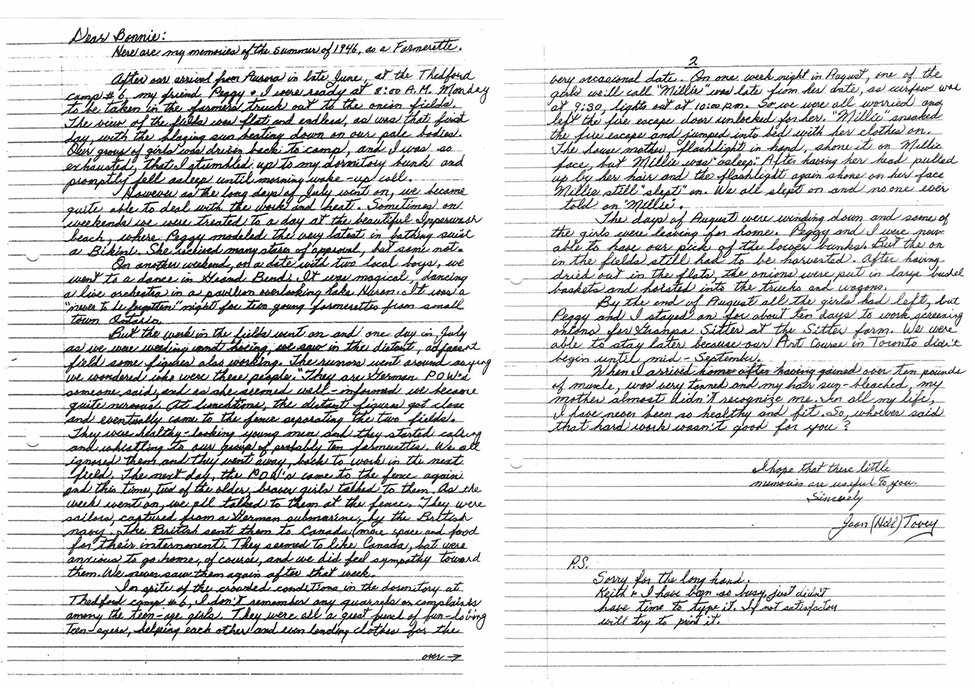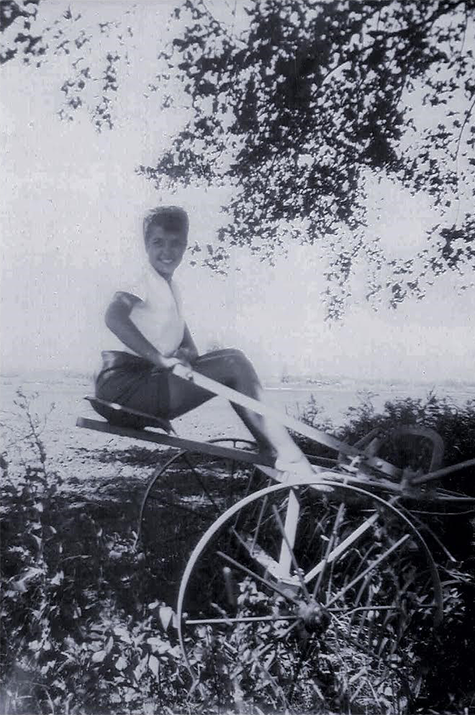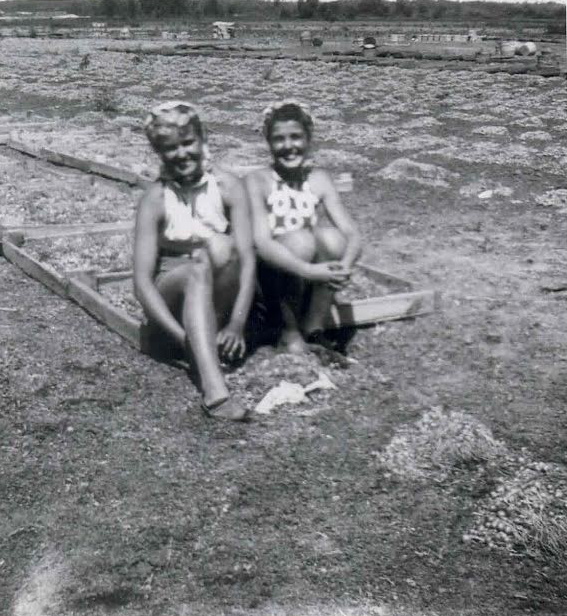Joan (Hill) Tovey
1946, Thedford
A hand written letter from Joan Tovey to Bonnie Sitter.
Here are my memories of the summer of 1946, as a Farmerette.
After our arrival from Aurora in late June, at the Thedford camp #6, my friend Peggy & I were ready at 8:00 a.m. Monday morning to be taken in the farmer’s truck out to the onion fields. The view of the fields was flat and endless, as was that first day, with the blazing sun beating down on our pale bodies. Our group of girls was driven back to the camp, and I was so exhausted, that I stumbled up to my dormitory bunk and promptly fell asleep until morning wake-up call.
However, as the long days of July went on, we became quite able to deal with the work and the heat. Sometimes on weekends we were treated to a day at the beautiful Ipperwash beach, where Peggy modeled the latest in bathing suits-a Bikini. She received many stares of approval, but some not.
On another weekend, on a date with two local boys, we went to a dance in Grand Bend. It was magical, dancing to an orchestra in a pavilion overlooking Lake Huron. It was a “never to be forgotten” night for two young farmerettes from small town Ontario.
But the work in the fields went on and one day in July as we were weeding and hoeing, we saw in the distant, adjacent field some figures also working. The rumours went around as we wondered who were these people. “They are German POW’s” someone said, and as she seemed well-informed we became quite nervous. At lunchtime, the distant figures got closer and eventually came to the fence separating the two fields. They were healthy-looking young men and they started calling and whistling to our group of probably ten farmerettes. We all ignored them and they went away, back to work in the next field. The next day the POW’s came to the fence again and this time, two of the older, braver girls talked to them. As the week went on, we all talked to them at the fence. They were sailors, captured from a German submarine, by the British navy. The British sent them to Canada (more space and food) for their internment. They seemed to like Canada, but were anxious to go home, of course, and we did feel sympathy for them. We never saw them again after that week.
In spite of the crowded conditions in the dormitory at Thedford camp #6, I don’t remember any quarrels or complaining among the teen-age girls. They were all a great bunch of fun-loving Teen-agers, helping each other and even lending clothes for the occasional date.
On one weekend night in August, one of the girls we’ll call “Millie” was late from her date, as curfew was at 9:30, lights out at 10:00 p.m. So we were all worried and left the fire escape door unlocked for her. “Millie” sneaked up the fire escape and jumped into bed with her clothes on. The house mother, flashlight in hand, shone it on Millie’s face, but Millie “was asleep.” After having her head pulled up by her hair and the flashlight again shone on her face, Millie still “slept” on. We all slept on and no one ever told on “Millie”.
The days of August were winding down and some of the girls were leaving for home. Peggy and I were now able to have our pick of the lower bunks. But the onions in the fields still had to be harvested. After having been dried out in the flats, the onions were put in large bushel baskets and hoisted into the trucks and wagons.
By the end of August all the girls had left, but Peggy and I stayed on for about ten days to work screening onions for Grandpa Sitter and the Sitter farm. We were able to stay later because our Art Course in Toronto didn’t begin until mid-September. When I arrived home after having gained over ten pounds of muscle, was very tanned and my hair sun-bleached, my mother almost didn’t recognize me. In all my life, I have never been so healthy and fit. So whoever said that hard work wasn’t good for you?
I hope these little memories are useful to you.
Sincerely,
Joan (Hill) Tovey
Joan (Hill) Tovey on farm machinery.
Joan (Hill) Tovey with Peggy Grunton from Aurora sitting with the harvest in a field.




 Subscribe to this page
Subscribe to this page